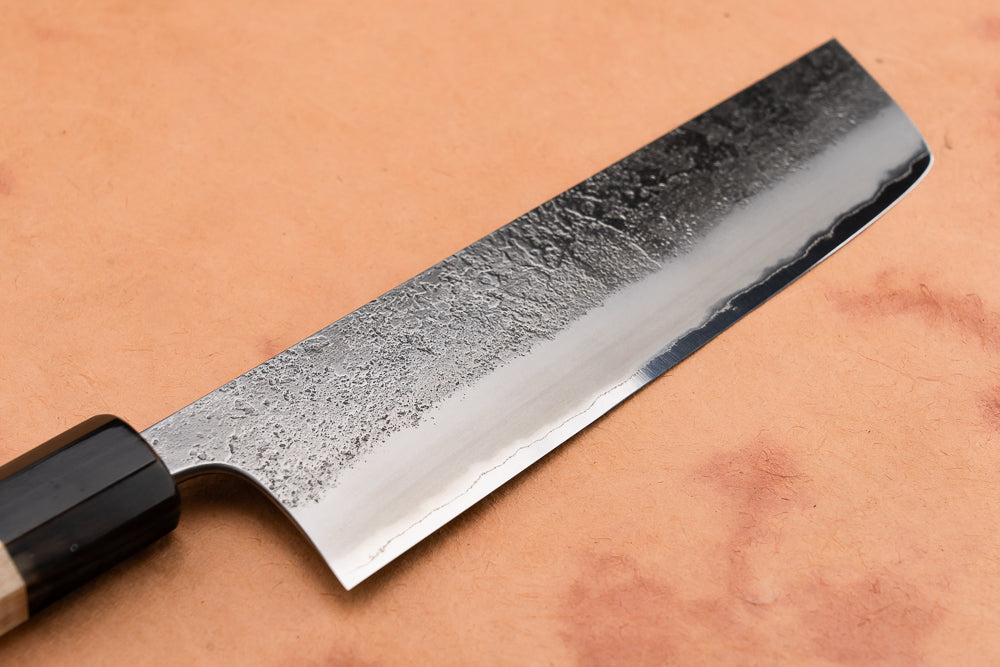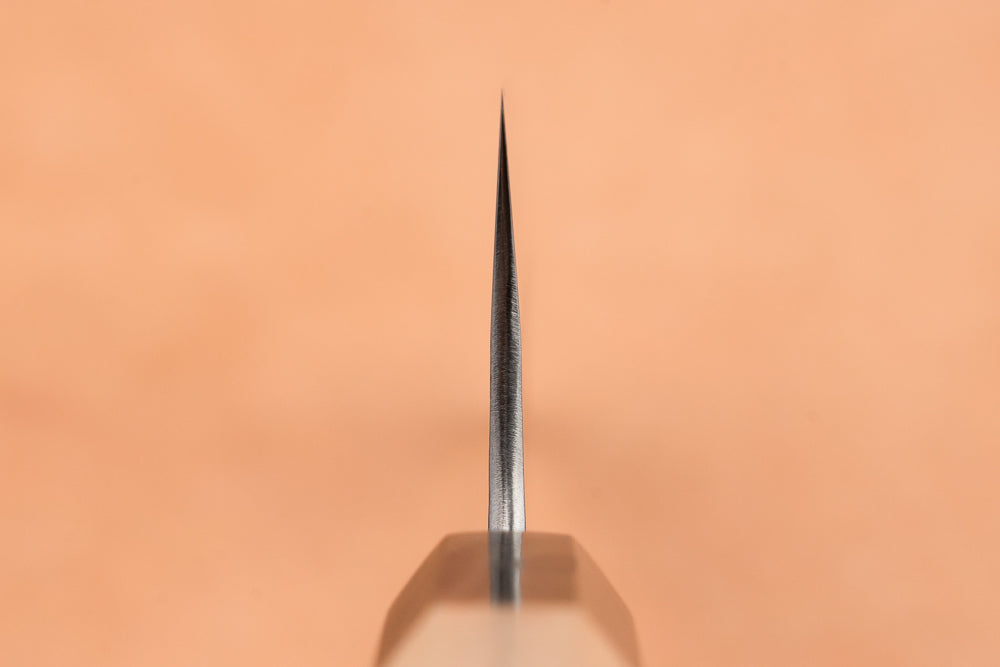Masashi VS1 KAIJIN Nakiri 165mm
Masashi VS1 KAIJIN Nakiri 165mm
Couldn't load pickup availability
About Masashi Kaijin - The blade's core is made from hard VS1 steel clad in softer stainless steel. Through a special heat-treating process, Masashi-san can make VS1 incredibly hard, giving it edge retention on par with high-end carbon steel. He sharpens blades in a unique way, making the back end more robust for chopping and the tip more precise for delicate work.
The textured appearance of the Kaijin gives its name, which translates to ‘ash’ and references the traditional forging process Masashi uses. Normally blacksmiths must overheat the knife to achieve this sort of finish, which can tamper with the knife’s quality, but Masashi-san is able to do it in a controlled, low-temperature way that doesn’t affect the steel.
First training with his brother at Yoshikane, then striking out on his own, Masashi Yamamoto relentlessly pursues the creation of a perfect knife using the traditional techniques passed down in his family and augmented by a modern understanding of metallurgy. He’s also a certified badass, forging in flip-flops and lighting cigarettes off red-hot steel like an 80’s action hero.
About the Shape - A Nakiri is a vegetable knife. Underutilized in the Western kitchen, the Nakiri’s flat blade is meant for the push/pull chopping of vegetables. Since the entire flat edge of the knife kisses the cutting board at once, you won't be turning the vegetable into an 'accordion', vegetables that are still connected like a paper doll after you're “done” cutting them. To truly understand the awesomeness of a Nakiri we recommend making onion soup your first night with the knife. The ease of chopping will blow you away.
| Shape | Nakiri |
|---|---|
| Blade Length | | |
| Blade Height | |
| Blade Thickness Above Heel | |
| Weight | |
| Steel Type |
Rust Prone ⓘ
This knife can rust, click to learn more.
|
| Edge/Bevel | |
| Handle | Wa (Japanese) Handle - Octagon Tochi Chestnut Water Buffalo Horn Collar |
| Knifeline | Masashi Kaijin |
| Blacksmith | Masashi Yamamoto |
| Made in | Sanjo, Niigata, Japan |
A note about measurements: Handmade Japanese knives can vary in their dimensions, so these measurements are only an example.
Shipping and Returns
Shipping and Returns
We aim to ship your order within 1 business day at Knifewear, if there is a hold up, we'll aim to let you know and give you a timeline.
We offer $3 shipping on orders over $100* anywhere in Canada and $200* to customers in the USA. We ship worldwide, and offer up to the minute rates from our shipping partner DHL.
*Konro Grills and some other larger items are excluded from the free shipping offer.
How do I make a return on an online order?
No worries, we've got you sorted. Head over to https://knifewear.com/returns and follow the prompts.
Can I pick up my order Curbside / At the store?
Absolutely, as long as all the items you are looking for are in stock at the location you want to pickup from, you'll be able to select that at the checkout. If one or more items aren't at your preferred location we are happy to ship it to you.
Request Additional Info
Request Additional Info






